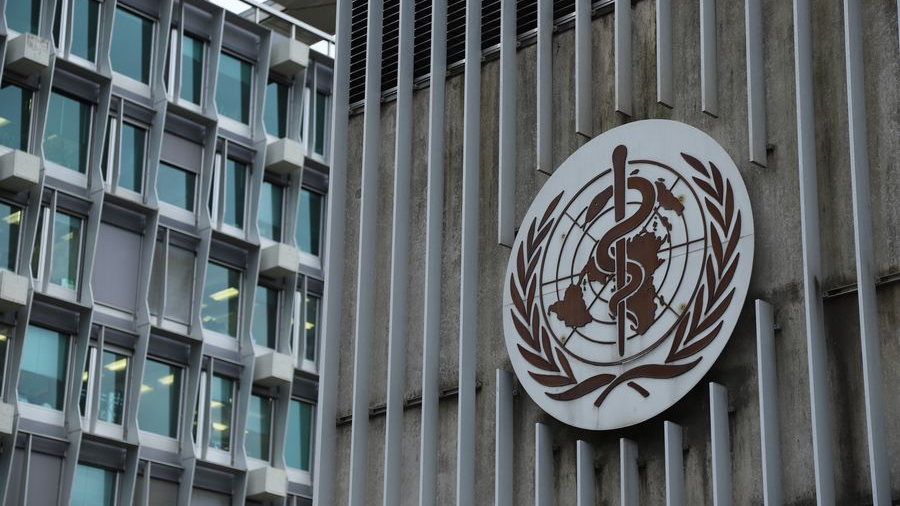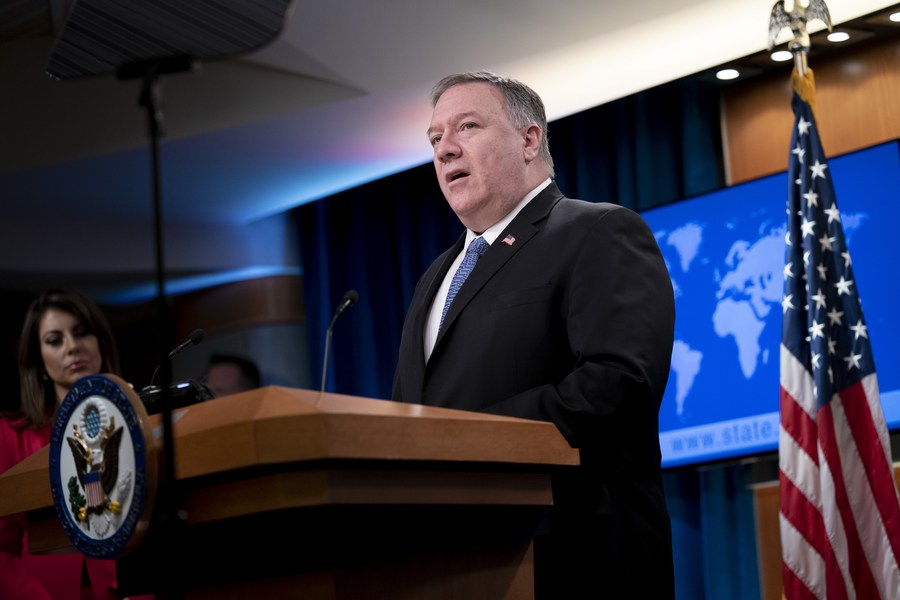
The headquarters of the World Health Organization (WHO) in Geneva, Switzerland, January 30, 2020. /Xinhua
The headquarters of the World Health Organization (WHO) in Geneva, Switzerland, January 30, 2020. /Xinhua
Editor's note: Tom Fowdy is a British political and international relations analyst and a graduate of Durham and Oxford universities. He writes on topics pertaining to China, the DPRK, Britain, and the U.S. The article reflects the author's opinions, and not necessarily the views of CGTN.
Last week it was reported by Reuters that transatlantic talks between the United States and European countries, namely France and Germany, on a vision to reform the World Health Organization (WHO) had abruptly broken down.
A senior official anonymously told the publication: "Nobody wants to be dragged into a reform process and getting an outline for it from a country which itself just left the WHO," with the report further elaborating that "the decision by Paris and Berlin to leave the talks follows tensions over what they say are Washington's attempts to dominate the negotiations."
The United States had announced its departure from the WHO several months ago, tying the organization to a politicized blame game aimed at China over COVID-19, which has reached over 5 million cases in the U.S. and over 160,000 deaths.
Trump had accused the organization of being beholden to China and before quitting, froze financial contributions to the agency. Despite having effectively quit, Washington has continued to make demands of it.
However, the Reuters report notes that European countries did not see fit to be as critical as the U.S. in "reforming" the organization, and thus talks broke down.
This development is a token representation of the highly unilateral, zero-sum and reckless approach to foreign policy that the Trump administration is taking, and illustrates the poor quality of the country's diplomacy which is being espoused by Mike Pompeo. The secretary of state for one is so lost in the self-complacency of this politics that he fails to recognize how this is in fact damaging America's position in the world, and how empty his calls for "free nations" to work together really are.

U.S. Secretary of State Mike Pompeo speaks during a press briefing in Washington, March 5, 2020. /Xinhua
U.S. Secretary of State Mike Pompeo speaks during a press briefing in Washington, March 5, 2020. /Xinhua
The Trump administration's foreign policy is derived from a realist philosophy of international relations which places emphasis on the fundamentals of power relations. On a strategic level, U.S. diplomacy follows a doctrine which argues America's best interests are served not by compromising with others through multilateral institutions and bodies, but by acting alone and weaponizing the capabilities of national power to make other countries accept and shift towards Washington's position by force.
Whilst unilateralism has always been a feature of the United States' foreign policy by varying degrees, the current administration has used it almost exclusively as an approach to everything, tied with Trump's personal tactics of bullying and threatening others. Together, it has become known as "America First."
Although this has thrown Washington's weight around, the total unwillingness of the administration to negotiate and compromise with others has proved seriously detrimental to its alliances and international reputation, as it is in effect trampling abrasively on the interests of other countries.
This is the approach the presidency has taken towards the WHO. The White House believed they could change the WHO forcefully by quitting it, and then making unilateral demands to other countries to adopt their vision.
It has become commonplace for the administration to pull out of international treaties, agreements and bodies, yet still seeking to dictate to other countries how these entities ought to be run.
It doesn't come as a shock that this isn't working. Many countries, especially in Europe, approach the WHO with a "multilateral" mindset, believing that institutions such as this ought not to serve one country only, but a broader common good for the world.
As a result, America's negotiating demands are interpreted in European capitals as being too extreme, self-centered and uncompromising, as has been many of Washington's demands towards Europe.
Thus the failure of these speaks volumes about the broken state of America's diplomacy right now under Pompeo. Although he calls for "free nations" to come together against China, claiming that he's "seen the tide turn," the rhetoric is empty and nonsensical because it can barely paint over the administration's coercive and unilateralist approach towards foreign policy, which simply expects obligation from allies without a serious insight into the interests of others.
(If you want to contribute and have specific expertise, please contact us at opinions@cgtn.com.)